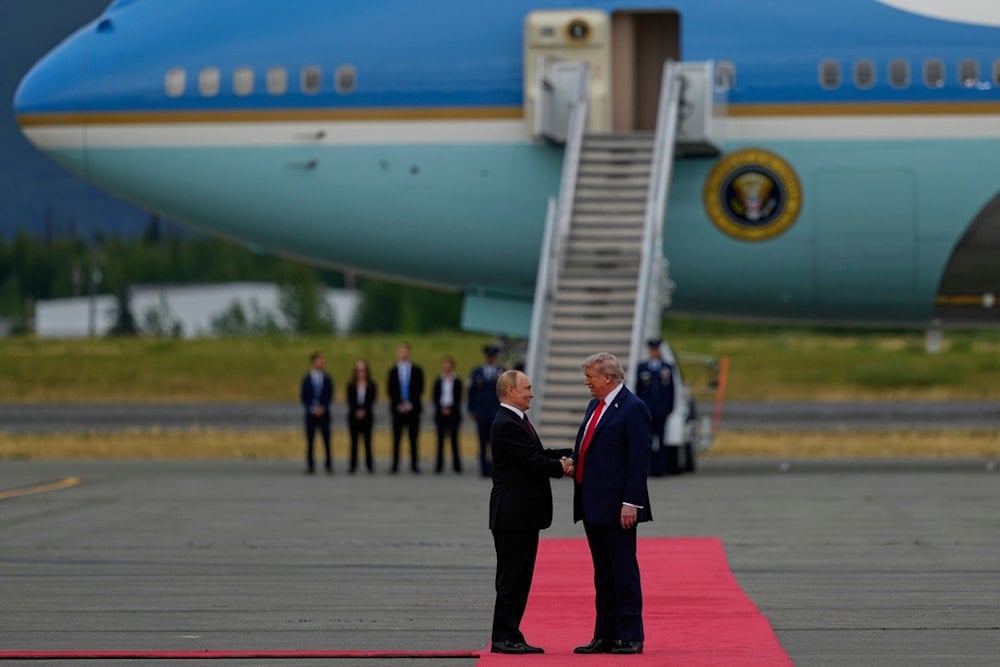US prepares to sanction Rosneft, Lukoil if talks fail: Reports
The Trump administration is considering sweeping sanctions on Russia’s oil sector to pressure Moscow into a Ukraine ceasefire during the Alaska summit.
-

President Donald Trump greets Russia's President Vladimir Putin Friday, Aug. 15, 2025, at Joint Base Elmendorf-Richardson, Alaska, US (AP Photo/Julia Demaree Nikhinson)
The Trump administration is preparing a potential sanctions package that could directly target Russia's largest oil producers, Rosneft and Lukoil, in a bid to pressure Moscow into agreeing to a Ukraine ceasefire during the ongoing Alaska summit between Presidents Donald Trump and Vladimir Putin, Bloomberg reported Friday, citing sources familiar with the matter.
According to the report, the measures under consideration would go beyond corporate sanctions, extending to vessels transporting Russian crude and imposing secondary penalties on foreign buyers, including China, that continue purchasing it.
Such steps would mark a significant escalation in Washington's energy war with Moscow, following earlier tariff hikes on Indian imports over New Delhi's continued oil trade with Russia.
Lawmakers in Congress are also advancing the Sanctioning Russia Act of 2025, which proposes tariffs as high as 500% on imports from countries still buying Russian oil, gas, or uranium.
Officials say the objective is to deliver maximum economic pressure on the Kremlin's war funding channels while leaving room for relief if a settlement is reached. Bloomberg's sources noted that Trump hopes any new sanctions, if implemented, would be temporary.
Sanctions Showdown
Earlier Friday, Trump warned that Russia would face "severe" economic consequences if his face-to-face meeting with Putin failed to produce progress toward ending the war in Ukraine.
The two leaders began talks at Joint Base Elmendorf-Richardson in Anchorage, where discussions are expected to center on a path to peace, potential ceasefire terms, and the future of US-Russia relations.
Analysts warn that a breakdown in negotiations could push global oil prices toward $90 per barrel, while a breakthrough might ease tensions enough to send prices below $65.
Efforts to sanction Russia's so-called "shadow fleet" of tankers, a network used to evade existing restrictions, are also expected to factor into the talks.
Read more: India refuses to yield on Russian oil amid US-EU sanctions: Analysis

 2 Min Read
2 Min Read










